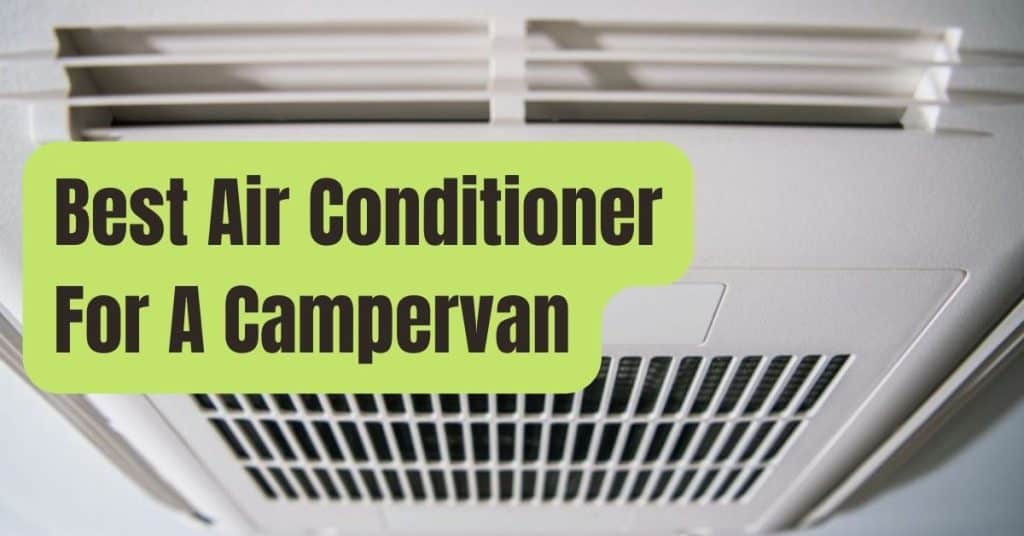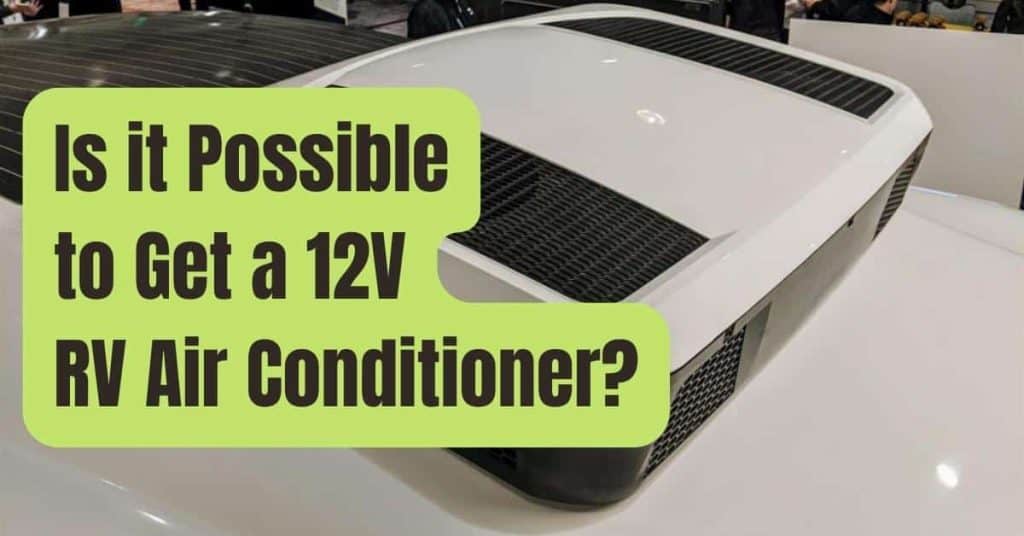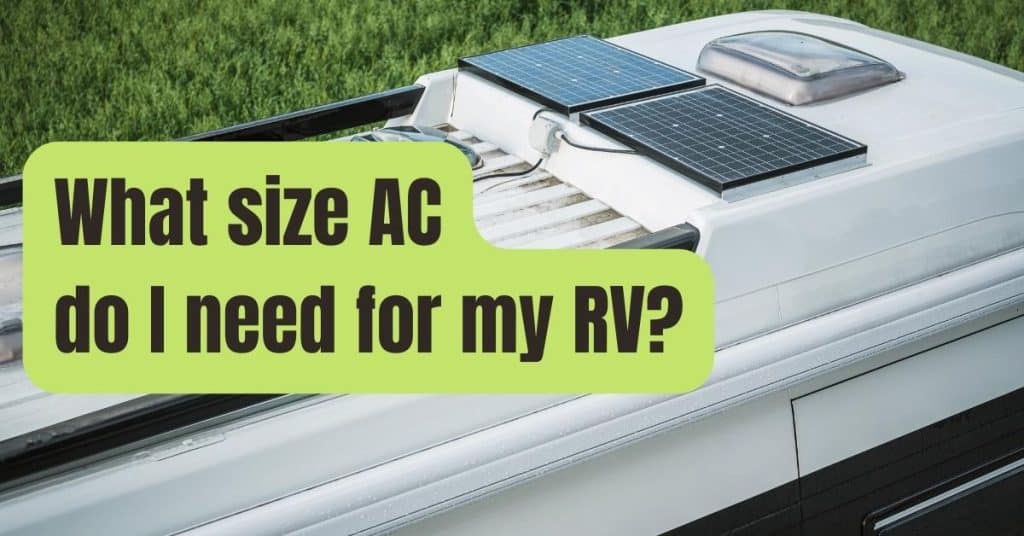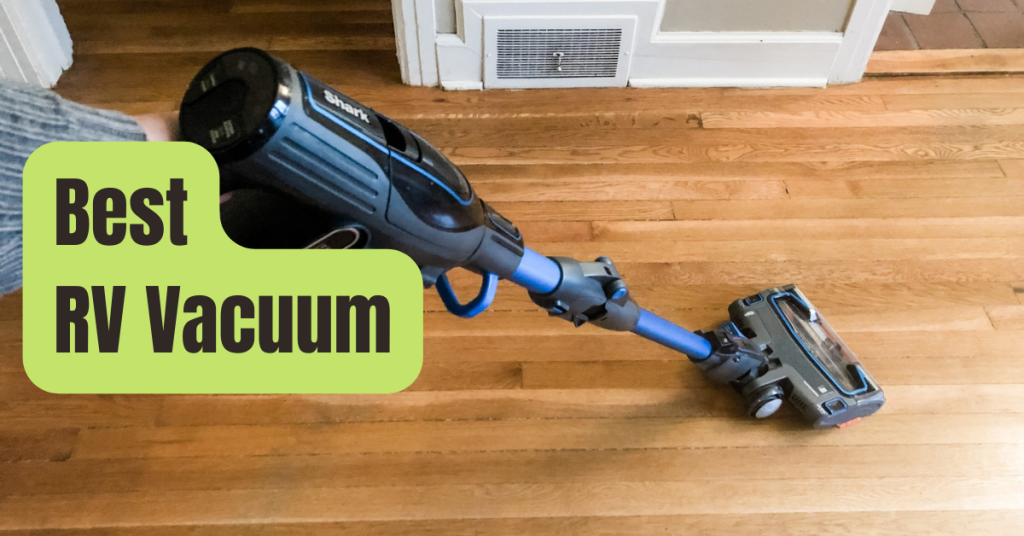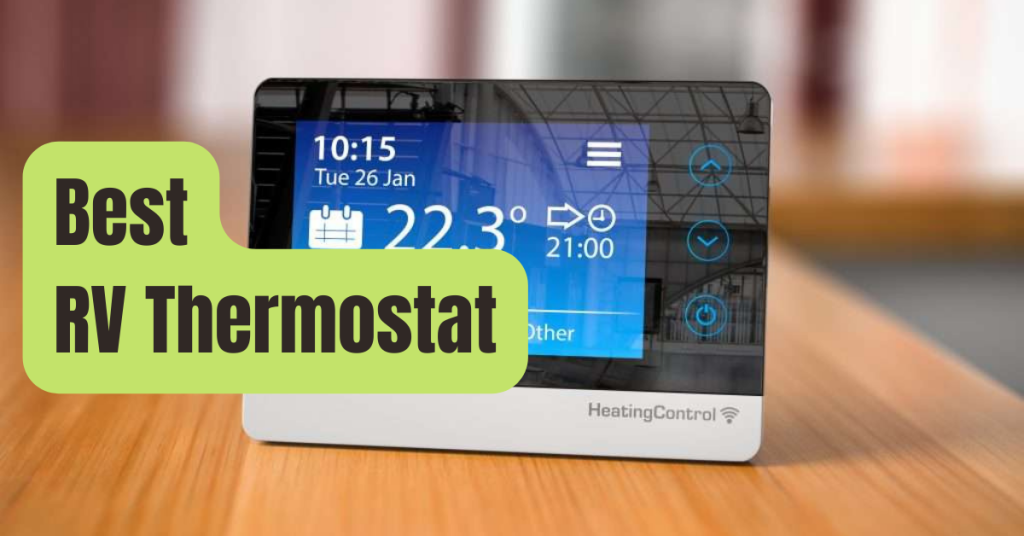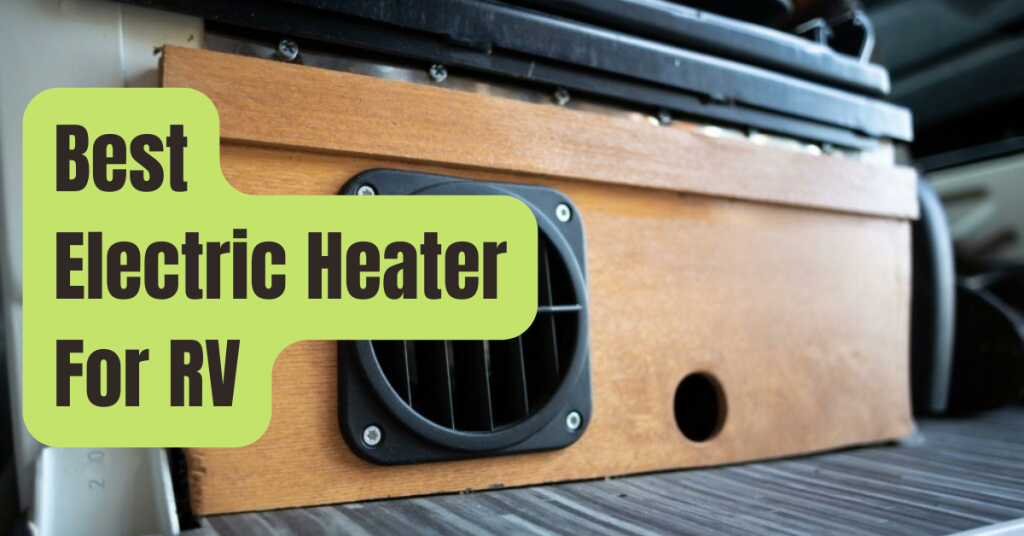Every year, millions of Americans travel across the nation in their RVs. These recreational vehicles may be equipped with a broad range of amenities, from satellite dishes to spas, but even the most frugal travellers will have a reliable air conditioner and heater.
Unfortunately, these little HVAC systems may lead to a variety of problems.
We’ll go through some of the most frequent problems people experience with RV Air Conditioners in this tutorial.
We’ve also put together a list of short maintenance instructions to ensure that your system is ready to go when you go on the road.
Common Air Conditioner Issues in RVs
An RV air conditioning unit, like any other electrical item, may develop a number of issues.
While we are unable to assist you with every noise or problem that may develop, we will explore the most frequent problems that individuals encounter, such as leaks, noise, and non-functioning devices.
The Air Conditioner in My RV Isn’t Turning On
When you’re on the road in the midst of summer, there are a lot of things to be concerned about, and an RV air conditioner that won’t turn on is at the top of the list.
You can only get so much airflow from an open window, and if your rooftop AC unit breaks down, you may be in for a long wait or a costly repair.
The first thing you should do if the machine won’t switch on is to check for electricity.
Check to see if any fuses have blown or if any breakers have been tripped.
You should also make sure you have adequate electricity to operate the air conditioner, particularly if you’re sharing power with other appliances in your RV.
If everything seems to be in order, you should attempt to reset your air conditioner.
Because this procedure varies, it’s essential to check your air conditioner’s user handbook beforehand. If your system still does not switch on and has power after being reset, you may have a problem with the circuit board or the thermostat within the system.
Unless you’re comfortable climbing on top of your RV and dismantling it, now is the time to review your warranty and consider hiring a professional.
If your air conditioner is still under warranty, don’t attempt to fix it yourself since you’ll invalidate the guarantee.
Read more: Why Won’t My RV Air Conditioner Turn On? Steps to Take
The air conditioner in my RV keeps turning on and off.
It’s not ideal to have an air conditioner that turns on and off all the time, but it’s something that a lot of road warriors have to deal with every year.
It’s also a difficult problem to detect, however the coils should be the first place you look.
The RV air conditioner may switch on and off frequently if the coils on your rooftop AC system get iced over.
Thankfully, this is a simple fix: either turn off the unit or put it on Fan mode until they thaw out. It may occur as a result of a clogged air filter, as well as on humid days depending on the temperature your air conditioner is set at.
Frozen coils may seem awful, but it’s a lot simpler to deal with than the other possible causes.
When the system starts to fail, a malfunctioning thermostat or a control board within the unit might cause the system to short cycle.
In either instance, you’ll need to hire a professional to diagnose and repair your RV’s air conditioner.
Read more: Can you run RV Air Conditioner on 30 AMP?
Leaks in RV Air Conditioners
The most common concern, apart from RV air conditioners with power difficulties, is a leaking system.
We’re not talking about the refrigerant, though that may create issues as well.
When your RV air conditioner leaks, whether it’s raining or not, it may harm the unit as well as everything else within your recreational vehicle.

When it rains, air conditioners leak…
It typically comes down to a few difficulties when the RV air conditioner leaks while it’s raining.
When the unit is loose, the simplest and easiest remedy is to tighten it.
This might happen over time if your recreational vehicle’s air conditioning system changes or is impacted.
If this is the case, you may fix the problem by tightening the nuts that hold the system in place.
If the gasket between the system and your RV isn’t loose, it may need to be changed.
It’s the initial line of protection against water seeping inside, but when exposed to the environment, the rubber gasket will ultimately break down.
As you can see in the video below, this is likewise a straightforward repair, albeit you may need some help removing and reseating the AC unit.
A broken roof is another reason why customers experience water leaks inside their RV.
This is more difficult to detect, but search for noticeable damage on the outside, notably any vents or mounts on the top.
Water will very certainly make its way into your recreational vehicle if the caulk is worn off.
When it’s dry outdoors, air conditioners leak…
It might be quite disconcerting to find water trickling in your RV during dry weather.
For recreational vehicles with a drain pan, a gentle trickle down the outside is OK, but the water should remain outside and not flow inside.
Water might leak back into your RV if the caulk or silicone work is done incorrectly.
The condensation from the system must go someplace, and if the route gets clogged with silicone, water may leak inside.
You should also inspect the drain pan if the Air Conditioner has one.
Little debris and dirt may soon fill the small hole in the pan, resulting in a leaking RV.
Air conditioners in RVs aren’t pumping chilly air.
Air conditioners in recreational vehicles that work but don’t create cold air is an issue that most RV owners face at some point.
While it may seem that your air conditioner is on its last legs, a thorough cleaning may be all that is required.
If your system’s coils are unclean, which is typical, your system’s efficiency will suffer.
Dirt and debris may become trapped between fins, causing damage to the fins.
With a fin comb and some elbow grease, you can clean and straighten them up.
The procedure will differ based on the AC unit’s brand and type, but this video will give you an idea of what to anticipate.
Cleaning your system is a vital aspect of keeping it working well, but it may not be enough to cure this problem.
Slow leaks or Freon depletion may occur in compressor-based systems that depend on Freon for cooling.
They can be recharged, however due to the hazards of Freon, we suggest having it done by a specialist.
Air conditioners in RVs that make a lot of noise
Recreational vehicles are intended to be locations where you may relax and unwind from the stresses of everyday life.
That’s difficult to accomplish in the heat of summer when your air conditioner sounds like a plane above.
A loud air conditioner is a typical issue, but there are a number of solutions available.
Look to check if there’s anything loose on the unit.
Anything might have been jostled free if you hear something rattling about above while you drive down the interstate with the unit turned off.
The noise might be caused by the mounting bolts that keep the AC unit in place, or it could be anything as simple as a loose screw or nut.
Is the equipment self-installed or was it installed by a professional? Anti-vibration pads are included with these systems, and it’s easy to overlook them if you’re in a hurry to install a new RV air conditioner.
They may also wear out with time, although they are inexpensive and easy to repair.
Fan motors, as well as systems with clogged air filters, may be loud.
A faulty fan may need the services of a professional, while a filthy air filter just requires cleaning or replacement.
Tips for Maintaining RV Air Conditioners
Many of the issues we’ve discussed are common, and many of them may be avoided with regular maintenance.
It’s also something your RV air conditioning system’s user handbook will emphasize.
While we strongly advise that you follow those recommendations, there are a few things to bear in mind while planning your air conditioner’s maintenance routine.
Remember to keep safety in mind when cleaning or unclogging anything on your RV.
After falling from the top of a recreational vehicle, several homeowners have spent time in the hospital.
Before going on top of your RV to examine the air conditioner, have a solid ladder and an assistance on hand, and take your time.
Check for damage to the shroud or cover, which might be caused by road debris, low-hanging branches, or random acts of Mother Nature.
It’s something you can’t see from the ground, and if yours is broken, you should repair it to avoid leaks and other problems.
It’s also a good idea to inspect the radiator fins, clean them, and straighten any that are twisted using a fin comb.
This will help your air conditioner run more efficiently and will save you a lot of problems in the long run.
Replace or wash any filters that need to be replaced on a regular basis.
We also strongly advise you to keep track of your maintenance records the old-fashioned manner or using a mobile app.
This will help you maintain a regular maintenance routine while also increasing the resale value of your RV.
Read more: RV Air Conditioner Compressor Not Coming On: Guide How To Fix
Conclusion
Because an air conditioner for a recreational vehicle is an investment, it is important to maintain it and get it serviced as required.
With that in mind, every air conditioner ultimately reaches the point of no return or becomes too expensive to repair.
Check out our top selections for the best RV air conditioners if yours is on its final legs.
RV Air Conditioner Frequently Asked Questions
How often should I check the refrigerant levels in my RV’s air conditioner?
You shouldn’t have to monitor the levels of any sealed air conditioner at any time. You should get your system serviced by a competent technician if you suspect it has a leak or isn’t cooling properly.
When my rooftop air conditioner is turned on, why does it trip breakers in my RV?
The most typical cause is that the voltage is too low or that you’re operating too many appliances at the same time. Obstructions may also cause your system to malfunction or overheat, leading to blown fuses and tripped breakers.
How often should I clean my air conditioner’s air filter?
How frequently you clean your filter is determined by how often you utilize the device. Manufacturers often propose once every several months or semiannually with regular usage.
What can I do to protect my RV’s air conditioning system from freezing up?
While this may occur when the temperature drops too low, the most likely causes are unclean coils and filters, airflow blockages, or a malfunctioning thermostat.
Is it simple to fix rooftop RV air conditioners?
It depends on the situation. The majority of folks will have little trouble replacing a broken shroud or unclogging a drain pan. Electrical issues, on the other hand, are a different matter, and attempting to fix the system yourself might invalidate your warranty.
Can you fix an RV air conditioner compressor or do you have to replace it?
While practically every portion of an HVAC system may be fixed, compressors are generally replaced rather than repaired.
What should I do with an RV air conditioner that isn’t going to be utilized for a long time?
If you’ve kept your AC system in good working order throughout the year, it should start right up again after the off-season. However, you’ll want to keep it covered, so invest in a high-quality waterproof rooftop air conditioner cover.


